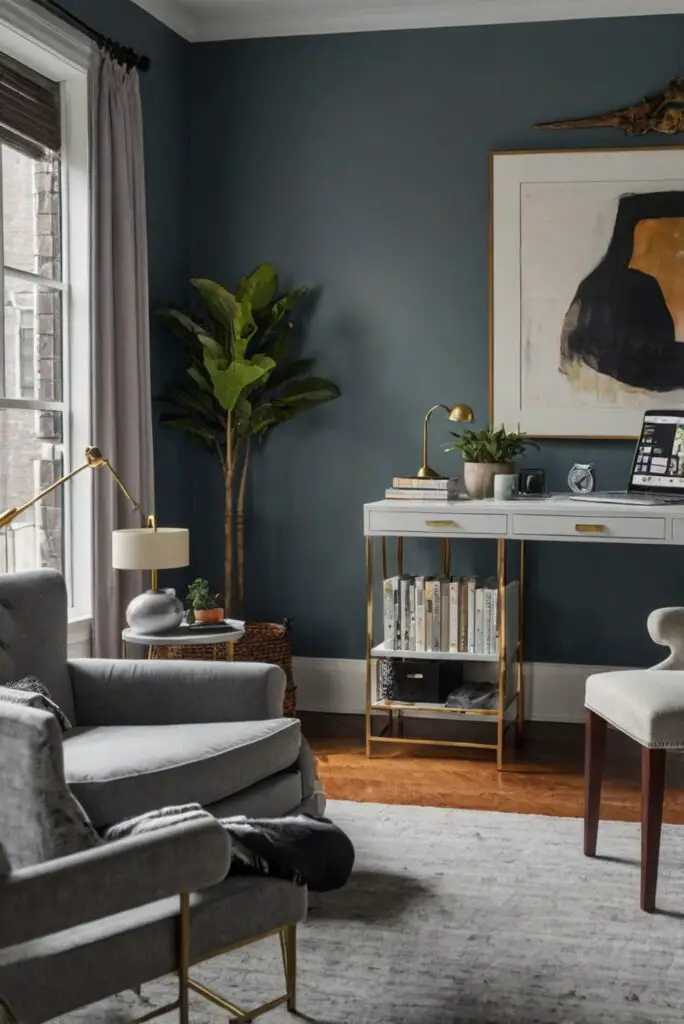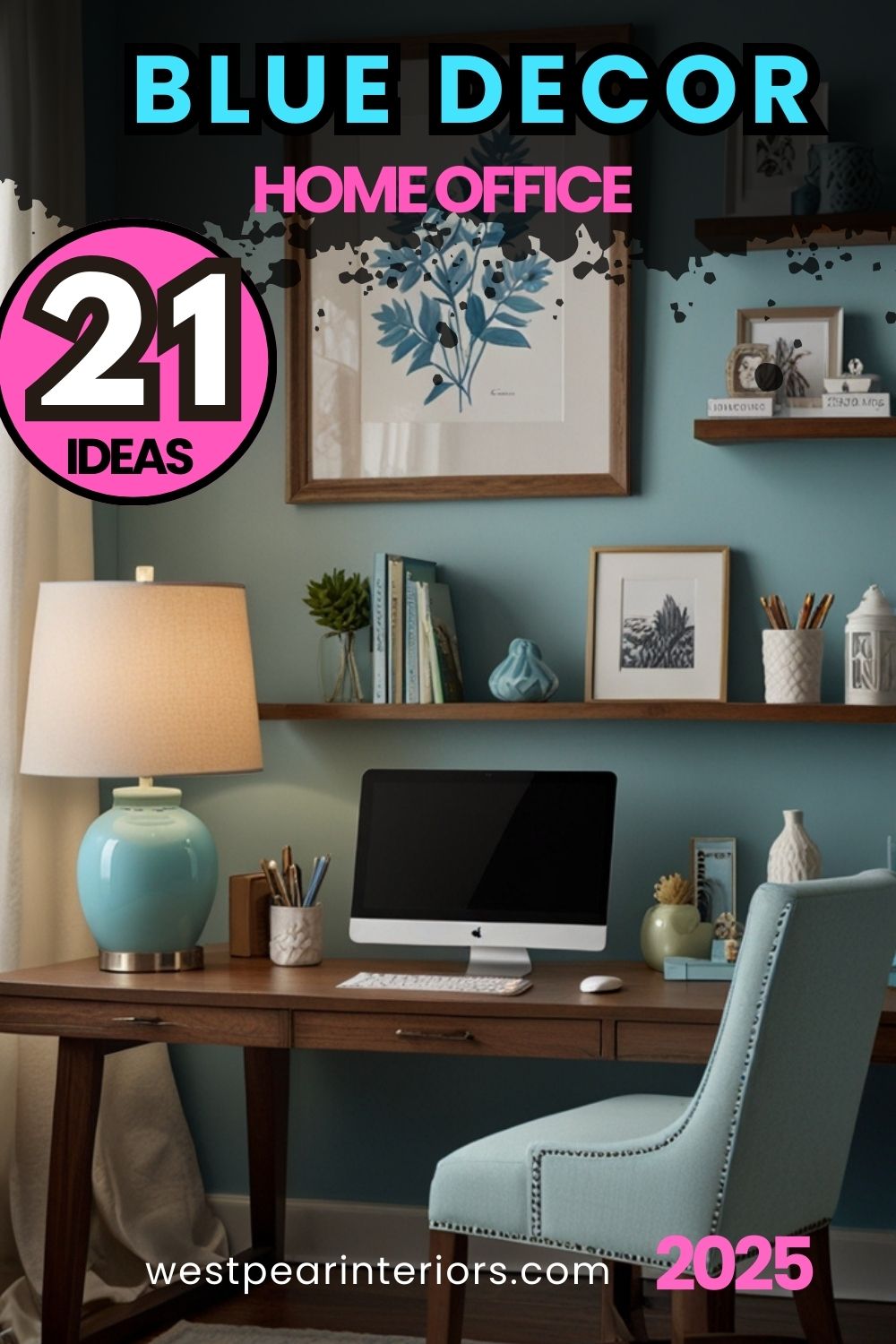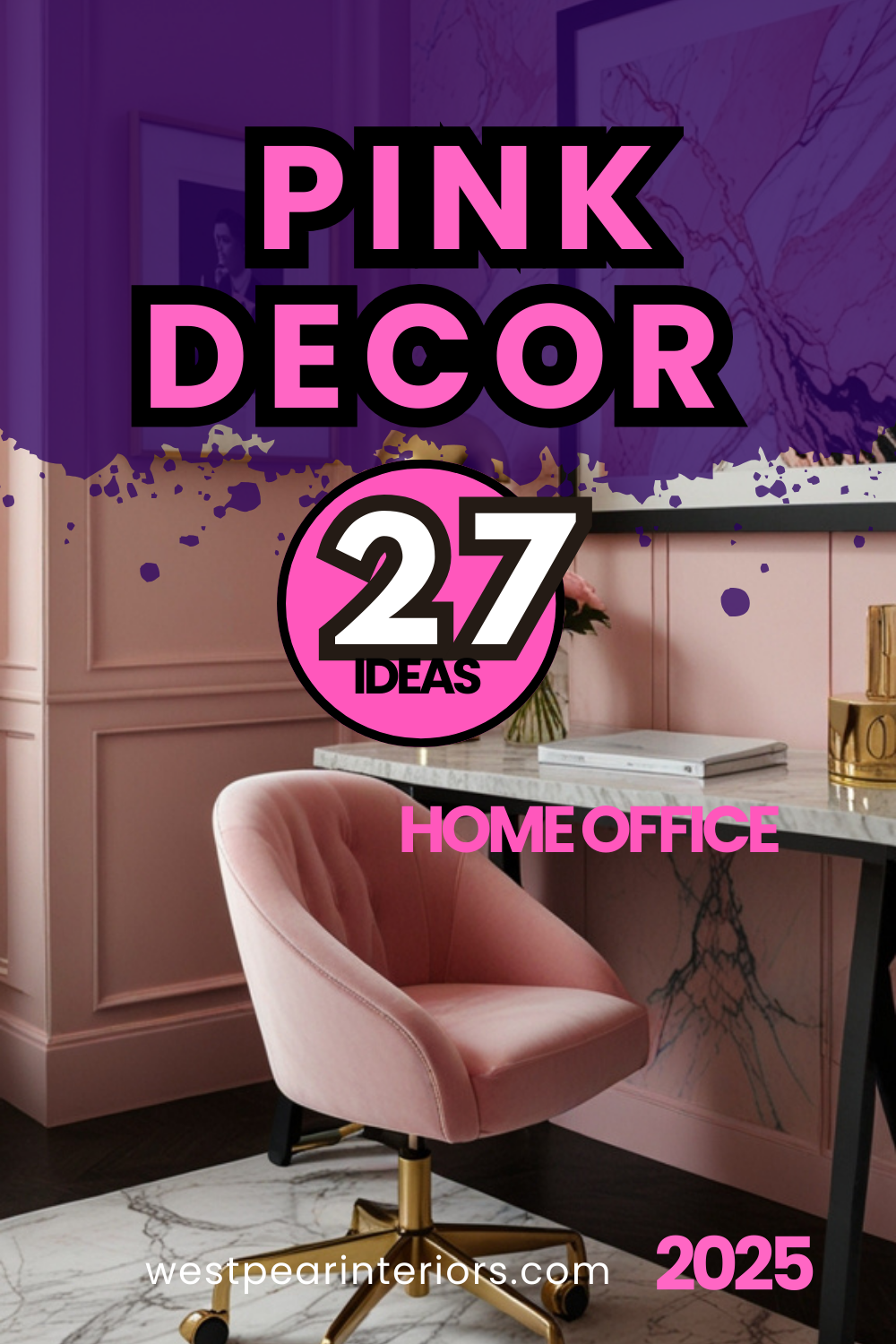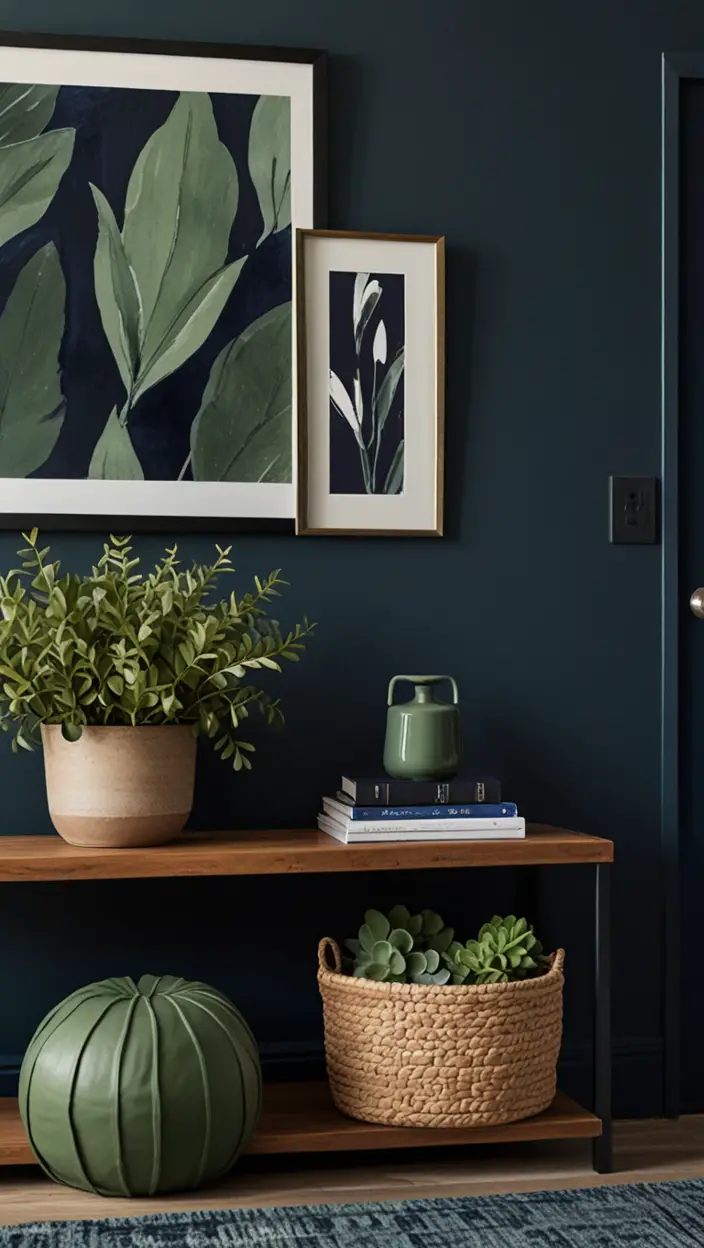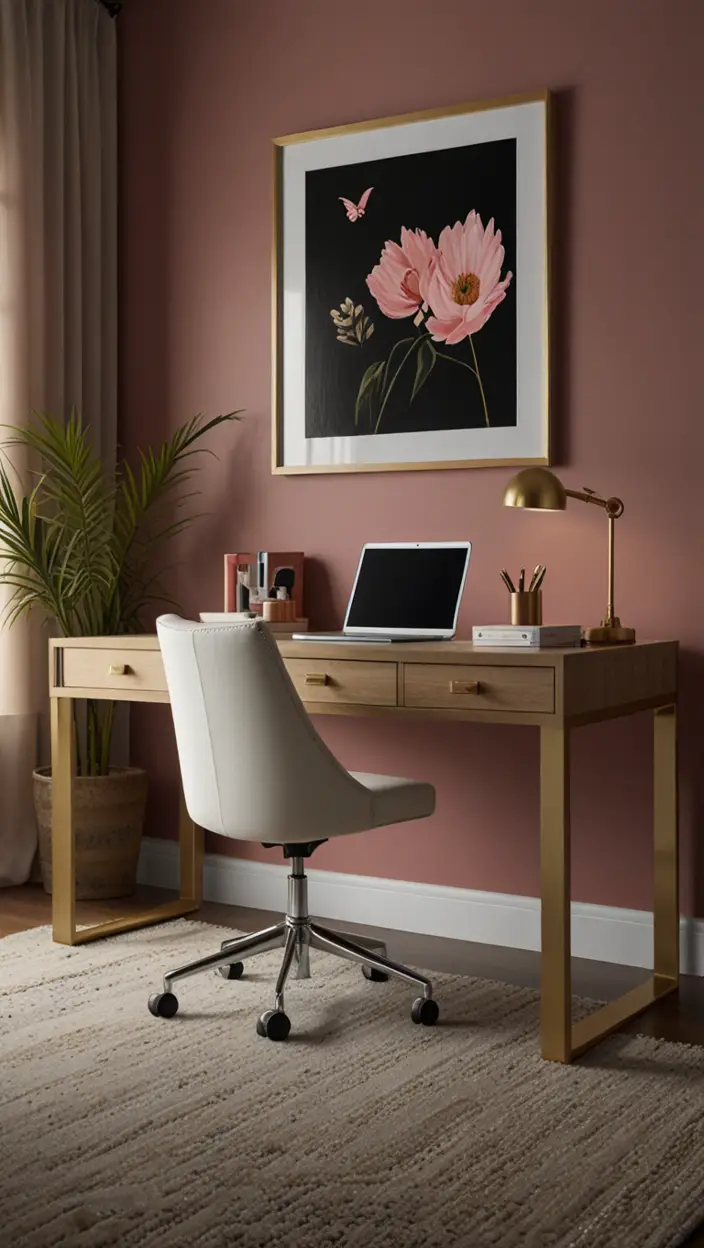Discover the enchanting world of mixing various shades of one color in your home office. Uncover the secrets to creating a harmonious and inspiring workspace.
Yes, mixing different shades of the same color in the home office can create a harmonious and visually appealing space. It adds depth and dimension while maintaining a cohesive look. To achieve this effectively, consider the natural lighting in the room as it can affect how the colors appear. Use a color wheel to help you select shades that complement each other. Start by choosing a base color and then add lighter and darker shades for contrast. Remember to balance the tones throughout the room to avoid overwhelming the space. By carefully selecting and mixing colors, you can create a home office that is both stylish and functional.
Mixing different shades of the same color in your home office can create a cohesive and visually pleasing space. Here are some tips to effectively mix different shades of the same color and create a harmonious design:
My Lovely Spring Paint for 2025
Ready for a Spring Makeover? Explore the Freshest 2025 Paint Trends!
White Sage/Green SW Pistachio green Soft blue Honeysweet/Orange Pink Sugar Sage Tint BMAs an Amazon Associate, I may earn a commission from qualifying purchases at no extra cost to you.
### How to Mix Different Shades of the Same Color Effectively in Your Home Office:
– **Balance:** Ensure there is a balance between lighter and darker shades of the same color to avoid overwhelming the space. Use lighter shades for larger areas like walls and darker shades for accents or furniture.
– **Layering:** Layering different shades of the same color adds depth and dimension to your home office. Consider using a variety of shades in your decor, such as furniture, rugs, curtains, and accessories.
– **Color Samples:** Before committing to a color scheme, test different shades in your home office to see how they look in different lighting conditions throughout the day.
– **Accent Colors:** Incorporate accent colors to break up the monotony of one color. Choose complementary shades or contrasting colors to create visual interest.
– **Natural Light:** Different shades of the same color can look different based on the amount of natural light in your home office. Consider how natural light affects the color before finalizing your design.
– **Texture:** Incorporating different textures like wood, metal, or fabric can enhance the visual appeal of your home office and add depth to the color scheme.
– **Consistency:** While mixing different shades, ensure there is a common thread that ties them all together. This could be a specific undertone or a shared color family.
### Choosing Complementary Shades of the Same Color for Your Home Office:
When selecting complementary shades of the same color, consider using the color wheel to find harmonious pairings. Colors opposite each other on the color wheel are complementary and create a striking contrast. For example, pairing a light blue with a deep navy can create a sophisticated and balanced look in your home office.
### Using Different Shades of the Same Color on Walls and Furniture:
Mixing different shades of the same color on both walls and furniture can create a cohesive and well-designed space. Consider painting your walls in a lighter shade of the color and incorporating darker shades through furniture, textiles, and accessories. This approach helps unify the space while adding depth and visual interest.
My fAV Spring DECOR for 2025
Discover Spring’s Best 2025 Decor Combinations – Perfect for Any Room!
Oversized Indoor Plants White Curved Sofas Rugs BOH Brown Cream Moroccan Hype Boho Rug Outdoor Patio Furniture Sets Topfinel Pillow CoversAs an Amazon Associate, I may earn a commission from qualifying purchases at no extra cost to you.
### Ensuring Different Shades of the Same Color Match Well:
To ensure that different shades of the same color in your home office match well, consider using paint swatches or color samples to compare tones. Look for common undertones and hues to maintain consistency throughout the space. Additionally, test different shades in various lighting conditions to see how they interact with each other.
### Color Combinations for Mixing Different Shades in a Home Office:
Some popular color combinations for mixing different shades in a home office include:
– **Gray Palette:** Mixing light and dark shades of gray can create a modern and sophisticated look.
– **Blue Scheme:** Combining different shades of blue, such as navy, sky blue, and teal, can bring a calming and serene atmosphere to your home office.
– **Neutral Tones:** Mixing various neutral tones like beige, taupe, and cream creates a timeless and classic color palette that can work well in any home office.
### Mixing Warm and Cool Shades of the Same Color:
Yes, you can mix warm and cool shades of the same color in your home office. This can add depth and complexity to your color scheme. For example, pairing warm beige walls with cool gray furniture can create a balanced and harmonious look that is visually appealing.
### Incorporating Texture and Patterns when Mixing Different Shades:
Incorporating texture and patterns is key to creating a dynamic and visually interesting space when mixing different shades of the same color in your home office. Consider adding textured rugs, patterned throw pillows, or textured wallpaper to create contrast and depth in your design.
### Key Takeaways:
– **Balance:** Achieve a balance between lighter and darker shades for a cohesive look.
– **Layering:** Add depth by layering different shades in your decor.
– **Consistency:** Maintain consistency in undertones or hues for a unified color scheme.
– **Texture and Patterns:** Include a variety of textures and patterns for visual interest.
By following these tips and strategies, you can effectively mix different shades of the same color in your home office and create a stylish and harmonious workspace.

